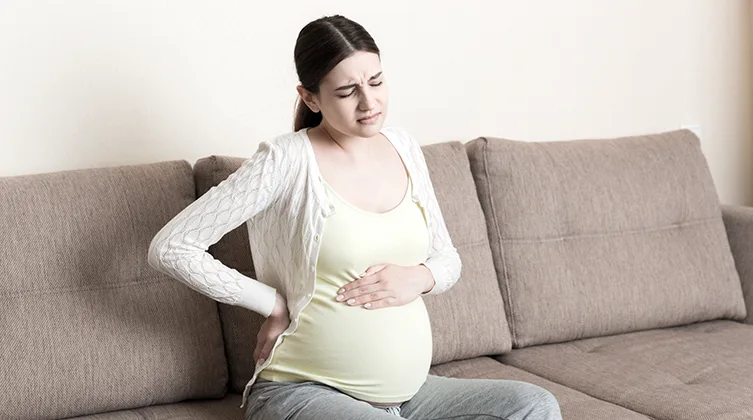Being constipated is pretty crappy (pun intended)! In addition to the physical discomfort of being backed up, constipation can really weigh you down with a range of other symptoms such as:
- Flatulence
- Bloating
- Reflux
- Skin breakouts
- Haemorrhoids
- Irritability
- And the list goes on…
Many of these symptoms evolve from the absorption of waste products back into your bloodstream, which adds additional stress to your detoxification systems, when you’re not eliminating regularly. Bacteria also thrive on the impacted faecal matter creating extra gas and causing discomfort.
Now that I’m pregnant, I hear more and more about women suffering with constipation and seeking natural solutions. Constipation is more prevalent during pregnancy because of hormonal shifts that slow down the motility of your gut. Your body’s goal here is to allow more time for nutrients to be absorbed during their transit through the small intestine. Clever, but it can also mean greater susceptibility to constipation.
Fortunately, my constipation troubles have eased with pregnancy. I’ve been lucky enough to crave nutritious foods and my appetite for chocolate has diminished (my kryptonite). I’ve also reduced my caffeine intake, eliminated alcohol completely, increased the fibre in my diet and my water intake. However, I still keep a less natural backup solution within arm’s reach (just in case). But more on these below.
Here are my top 10 tips to ease constipation woes during pregnancy (they can easily be applied for non-pregnancy too):
1. Eat the right kind of fibre. There are two main kinds of dietary fibre based on their solubility in water – soluble fibre and insoluble fibre. Insoluble fibre is commonly found in wheat and particularly bran. It is often referred to as ‘roughage’ because it can be pretty ‘rough’ on the digestive system. I recommend limiting wheat and wheat bran to assist with your digestive woes. As for soluble fibre, it can make stools softer and wetter, and thus easier to pass. It also adds bulk making the stools more formed. Subsequently soluble fibre can assist with both constipation and diarrhoea. Good food sources of soluble fibre include oats, flaxseeds, prunes, plums, beans, sweet potato, Brussels sprouts and psyllium husk.
2. Up your water intake. During pregnancy, your blood volume can increase as much as 50% above your pre-pregnancy amount. This means you need to consume more water to support your larger blood volume and to avoid dehydration. Dehydration is associated with constipation because water is preferentially absorbed into your bloodstream and therefore, if water is sparse, dry, hard stools can result, which are difficult to pass.
3. Watch out for those iron supplements. Pregnant women have a higher need for iron to support their increased blood volume, as well as to supply iron to the baby. During the second and third trimester, your baby will establish iron stores to support their nutritional needs during the first six months of life until food is introduced. Breastmilk is indeed low in iron and thus, this magical symphony exists. Iron is commonly added to prenatal supplements as anaemia is best avoided for the health of both mother and baby. However some iron supplements can exacerbate symptoms of constipation. Change up your prenatal supplement if you feel this is the case or discuss your unique situation with a qualified health practitioner and how much iron you should be taking (if any). Naturally iron absorption increases during pregnancy. You’re also no longer loosing significant amounts of iron through menstruation. As such, the amount of iron you need to support a healthy pregnancy may be lower than anticipated.
4. Consider magnesium salts. Who doesn’t need an excuse for a relaxing bath with Epsom salts (chemical term is magnesium sulfate)? Just remember to keep the water temperature below 37 degrees Celsius. I ensure this by using a handy automatic temperature sensor (same as you’d use in the kitchen!). Epsom salts should NOT be consumed orally when pregnant. They are considered Pregnancy Category D by the FDA, which means there is positive evidence of risk in humans. But at a highly diluted amount they are perfectly safe for soaking in, and can give you relief from a whole range of pregnancy aches and pains, including back aches, muscle tension, leg cramps, and general achiness.
5. Sip on chamomile tea. A warm cup of chamomile tea is not only soothing to the senses, but can help get things moving. Chamomile tea helps relax the smooth muscles of your large intestines, making evacuation smoother and easier.
6. Cut back on caffeine. Constipation and pregnancy is a good reason to drastically reduce your caffeine intake or (gasp) quit altogether. Caffeine is a natural bowel stimulant. Great!? When constipation hits…? Unfortunately, your body rapidly adapts and you need more and more…this is bad news for both you and your bub who also gets a caffeine hit every time you sip on that delicious coffee. Caffeine can make you bowels sluggish and dependent. Try weaning yourself off slowly. Maybe opt for some tea instead as tea contains significantly less or no caffeine.
7. Get moving. While exercise temporally diverts activity away from your bowels to your brain and working muscles, it can help get things moving in the intermediary. Choose gentle exercises that suit your personality and stage of pregnancy, and always listen to your body.
8. Chill out. When you’re stressed, your ‘fight or flight’ response kicks into gear. This doesn’t require a viscous grizzly bear to be on your tail, but can be triggered by a simple task like opening your email account to discover you’ve got 80 new emails all requiring your immediate attention. Chronic stress can be a major culprit when it comes to constipation. As with exercise, stress diverts activity away from your digestive system. Digestion is not considered important when you’re main concern becomes to fight or to run. Try reducing the stressors in your life or take time out for relaxing activities such as yoga or meditation.
9. Don’t hold on! When you gotta go, go! If you hold on your body gets the message not to go (stating the obvious here). But when we regularly ignore our body’s signals to defecate, we can actually retrain it. Meaning the communication and physiological systems that help us to complete our business become disconnected.
10. And if all else fails, seek advice from your doctor. You might find they suggest Metamucil. Personally I don’t recommend it as it contains aspartame (an artificial sweetener) and other unnecessary, unnatural ingredients. Plus you can just purchase pure psyllium husk from the supermarket or health food store and add this to various foods, which is actually what I did after being disgusted with the ingredients list on the packets of Metamucil. Ask your doctor for other safe alternatives if times get desperate.
Please feel free to send me any questions or ideas for articles about pregnancy and gut health in the comments box below or via my contact form. I absolutely love writing about these topics and sharing my knowledge and research to help you live your happiest and healthiest life.





